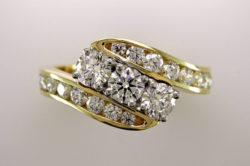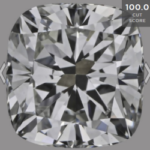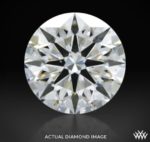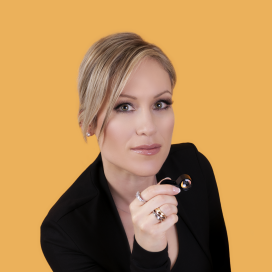Different Diamond Buyers – Selling Your Diamond Jewelry
Do you have a loose diamond or pre-owned engagement ring that you are looking to sell? Perhaps it is an engagement ring that you would like to upgrade or maybe you have acquired a piece of jewelry as part of an inheritance and have no use for it. From private diamond buyers to pawn shops, here’s a quick guide in how to get the best deal when selling your gently used diamond jewelry.

“3 stone ring with channel set” by TVZ Design is licensed under CC BY 2.0
Before we begin to understand how to sell a diamond engagement ring privately, let’s dispel some common myths. Most people think that they can get more than what they paid for the ring, based on the assumption that diamonds appreciate in value and are solid investments. This is almost never the case. Unless you purchased an unusually large diamond with top color and clarity grades or invested in a particularly rare fancy colored diamond, you will be surprised to find out that diamonds don’t actually increase in value. In fact, in most circumstances a diamond ring is worth the wholesale price of your diamond plus whatever precious metal your diamond is set in.
How can this be? Well, it is important to keep in mind that the retail cost of your engagement ring includes a mark-up from the business (this is both for brick and mortar stores as well as online retailers). This mark-up is necessary to off-set the costs of business expenses (salary, electricity, rent, marketing fees, etc) and time and materials for any custom/hand-made piece of jewelry. Mark-ups can run anywhere from 25% – 70% (depending on the quality, value, and branding of the diamond and price mark-up in general at the store – think Tiffany) of what you originally paid for the diamond ring.
For some, this is a difficult pill to swallow. However, if keeping the diamond ring or jewelry is of no use or benefit, many people resolve to move forward and see what money they can realistically look to receive.
Selling Your Diamond Engagement Ring – Factors That Make A Difference
If you are thinking of selling your diamond engagement ring, there are a few factors that help to increase your odds of getting a better return on your initial purchase. These factors include:
– Diamond Grading Reports (aka diamond certification) from a well known and reputable gem lab that is less than three years old
– Independent appraisal from an accredited gemologist
– Current research on diamond prices for realistic and up-to-date retail value (for example, you can use the ODBA Diamond Search to see what your specific diamond specs; carat weight, color, clarity, table %, depth%, etc. are currently selling at)
Given these three factors, one can extrapolate an accurate wholesale price for what your diamond’s ultimately worth in today’s market. After careful consideration to these three factors, it is up to you how you want to move forward in the actual selling process of the diamond engagement ring.
Different Options In Selling Your Diamond Jewelry
Once you have an accurate view on what price you can realistically sell your diamond engagement ring for, you then have several options on how to go about doing this. These include selling to or through a jewelry store, a local gold/exchange pawn shop, selling the piece privately on a platform (classifieds, ebay, etc.) or working with a diamond buyer.
Jewelry Stores:
The jewelry industry is a “credit” business with most jewelry stores operating on a consignment basis. Jewelers typically buy their inventory on credit and when the jewelry piece is sold the jeweler pays the manufacturer. This allows the jewelry store owner to make a profit without actually reaching into the business to pay for an item. Given this business model, jewelers are hesitant to actually pay ahead of time for any inventory held in the store unless they have negotiated a very good deal.
If a jeweler does agree to purchase your jewelry item, they normally offer the public half of the wholesale price in order to make the whole transaction worth their while.
Pawn Shops:
One might think that pawn shops are a decent place to unload unwanted jewelry – but there are some major pitfalls here as well.
For example, pawn shops and gold exchanges are typically not qualified to purchase diamonds at a fair price as they are not trained in proper grading. Their knowledge of the diamond market is also less than desirable. These businesses love to purchase just gold (it’s a fairly easy calculation to determine value) and therefore will only purchase a diamond if they can buy it extremely low.
Private Platforms (Ebay, Craigslist, Classified Ads):
Private platforms that allow you to sell directly to the public like Ebay, Craigslist or a classified ad are just as cumbersome. Keep in mind:
– Ebay, Craigslist, and Classified Ads are known to attract many scammers and PayPal schemers. It is becoming increasingly difficult to transact using these platforms because so many people are taking advantage of unsuspecting sellers.
– The general public tend to not have the liquidity to purchase a jewelry piece listed at $2000 or more. It is difficult to compete with a retail store that offers various financing options.
– You will need to get your jewelry piece polished and ready for wear (to increase saleability)
– You cannot compete with jewelry store offers such as free cleaning, polishing, sizing, financing. Again, it is difficult to compete with a retail store that offers guarantees like these as well as convincing the general public that your diamond is natural and not enhanced.
Overall, it is difficult to privately sell a piece of jewlery when other competing retail stores are often times selling the same piece of jewelry at just above wholesale – BRAND NEW. Why would someone choose to purchase your used engagement ring when they can get a brand new one with added guarantees for about the same price?
Diamond Buyers And Dealers:
Good dealers are able to get top dollar for a diamond because they have connections in the industry and often know ahead of time if a particular investor, collector, or retailer would be interested in specific diamond inventory. Diamond buyers have also taken the time to build trusting relationships in their small circles, have built their reputations, and work regularly to facilitate mutually beneficial business relationships that the public simply doesn’t have access to.
Like many industries, diamond sellers, dealers and brokers all work within a very tight niche. The best performing businesses with consistently high quality products, craftsmanship and customer service often get referred through word of mouth; being that they were built by meticulous and careful strengthening of their reputation.
ODBA Recommends








